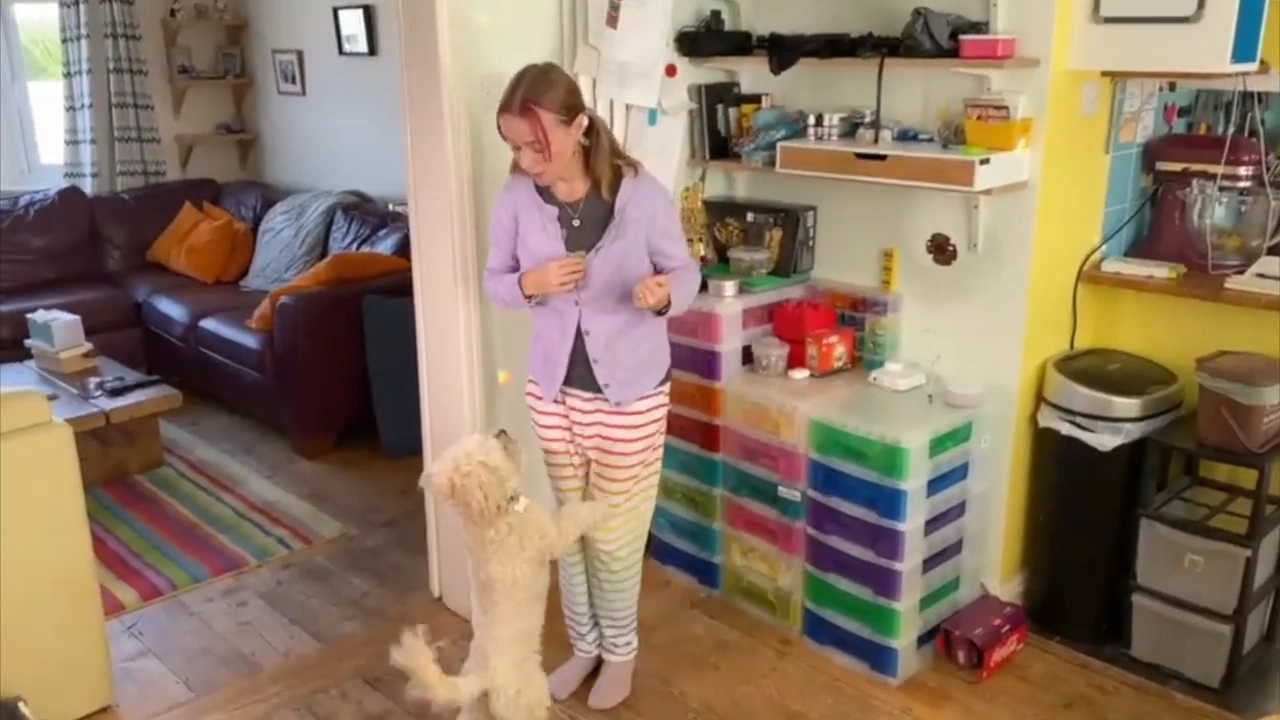Have you ever stumbled upon a story that just tugs at your heartstrings and opens your eyes to a world you barely knew existed?
Well, that’s exactly the journey I embarked on today… and it’s all thanks to an assistance dog named Coco. 🐾
The Beginning of a Beautiful Friendship
Imagine a puppy, just 12 weeks old, stepping into a role that’s beyond the typical fetch and play.
That was Coco for her human companion, who sought more than just a furry friend but a support system due to being autistic.
Initially, the thought was simple – Coco might only offer the comfort any beloved pet does within the confines of home or pet-friendly zones.
Yet, the story took a turn towards something much more profound.
Discovering a Path Less Known
Navigating through the options for assistance dogs in the UK presented its own set of challenges, especially when looking for support for autistic adults.
That’s when the discovery of Dogs for Autism became a beacon of hope – a charity offering assistance dogs for individuals across the age spectrum.
And as fate would have it, this journey didn’t just end with finding support; it led to becoming an ambassador for the cause. 🌟
Training, Learning, and Growing Together
Enter Pawsable – the organization that bridged the gap between aspiration and reality for Coco to become an officially recognized assistance dog.
Through months of dedicated training and overcoming challenges together, Coco transformed into not just a pet but an indispensable support system.
This process wasn’t just about passing tests; it was about evolving together in sync with each other’s needs and nuances in daily life.
Understanding Assistance Dogs: More Than Just Pets
Assistance dogs are not just pets; they’re lifelines for their handlers, offering support, independence, and confidence.
From performing deep pressure therapy to interrupting potential meltdown triggers, these dogs are trained to cater to specific needs, making them integral to their handlers’ lives.
Navigating Through Legalities and Social Challenges
Despite their invaluable role, assistance dogs and their handlers often face legal and social hurdles.
The UK’s lack of stringent regulations around assistance dogs sometimes leads to challenging situations in public spaces.
However, armed with knowledge about Equality Law 2010 and a relentless spirit, these teams advocate for their right to access public spaces without discrimination.
Public Misconceptions: A Call for Awareness
One of the recurring challenges faced in public is the allure Coco presents as an adorable dog.
Despite wearing badges that clearly state “Do not pet,” there’s an ongoing struggle with individuals who wish to interact with her, distracting her from her vital duties.
This brings to light the need for widespread awareness regarding how to properly interact with working assistance dogs.
A Heartfelt Plea: Respect Their Space
If there’s one takeaway from this enlightening journey, it’s the importance of respecting working assistance dogs by allowing them to focus on their tasks undistracted.
These dogs are not just pets; they’re essential support systems for their handlers.
Recognizing this can make all the difference in ensuring they can perform their duties effectively.
Spreading Awareness: One Story at a Time
Sharing stories like this isn’t just about shedding light on individual experiences; it’s about fostering understanding and empathy towards assistance dog teams everywhere.
It’s about rallying community support and ensuring that these unseen heroes receive the recognition and respect they rightfully deserve.
So next time you encounter an assistance dog in action, remember Coco’s story…
And maybe, just maybe, we can collectively make their world a little bit easier—one respectful interaction at a time. 🐶💖
And remember… If you’re moved by stories of incredible bonds between humans and their furry assistants or if you’re looking to support causes that make a real difference, consider lending your support to organizations like Dogs for Autism.
It’s through collective action that we can bring about change and ensure that assistance dogs like Coco can continue to provide unwavering support to those who need it most.

